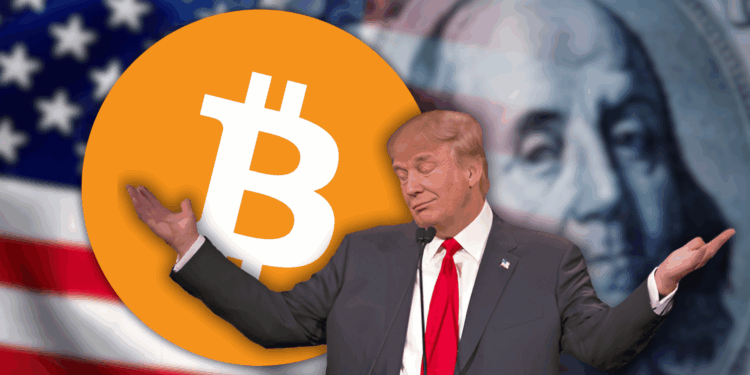- President Trump signed the GENIUS Act, America’s first major crypto bill, legalizing stablecoin issuance and trading during a White House ceremony.
- The bill provides regulatory clarity, enabling banks, retailers, and financial firms to safely enter the stablecoin sector.
- Crypto leaders remain focused on broader regulation, as market structure legislation works its way through Congress with bipartisan momentum.
President Donald Trump signed the GENIUS Act into law on Friday afternoon, marking the United States’ first major step toward formalizing crypto regulation. The bill, which establishes a comprehensive framework for stablecoins, was signed during a flashy East Room ceremony at the White House, with top crypto industry leaders and policymakers in attendance.
“I pledged that we would bring back American liberty and leadership, and make the United States the crypto capital of the world,” Trump said during the event. He also highlighted previous crypto-friendly moves, such as banning a U.S. central bank digital currency (CBDC), establishing a national Bitcoin reserve, and pardoning Silk Road founder Ross Ulbricht. “And that’s what we’ve done,” he added.
The guest list featured some of crypto’s most powerful names, including Coinbase’s Brian Armstrong, Circle’s Jeremy Allaire, Robinhood’s Vlad Tenev, Tether’s Paolo Ardoino, Kraken’s Dave Ripley, and the Winklevoss twins. Also in attendance were Vice President JD Vance and new SEC Chair Paul Atkins, signaling full-throttle government support.
Stablecoins Now Have a Clear Legal Path
Stablecoins—digital assets pegged to traditional currencies like the U.S. dollar—are seen as critical bridges between crypto markets and mainstream finance. Until now, regulatory uncertainty had kept traditional institutions like banks and retailers on the sidelines. But with the GENIUS Act now law, the stablecoin sector has a federal green light to expand.
The new law lays out clear rules for issuing and trading stablecoins, setting standards for reserves, auditing, and consumer protection. Mastercard’s head of global policy, Jesse McWaters, called the law “a turning point,” emphasizing that it delivers the regulatory clarity needed to push digital dollars into the mainstream.
Crypto insiders, Republican lawmakers, and members of the Trump administration have all celebrated the bill’s passage—though its success wasn’t guaranteed earlier in the week when internal GOP opposition briefly stalled procedural votes.
The Battle for Full Crypto Regulation Continues
While the GENIUS Act is now law, broader crypto market structure legislation—long sought by the industry—is still working its way through Congress. That sweeping bill would define how various tokens are classified and provide clearer oversight for crypto exchanges, DeFi platforms, and tokenized securities.
On Thursday, that bill passed the House with support from nearly all Republicans and 78 Democrats. But Senate passage remains uncertain. For crypto executives like Robinhood CEO Vlad Tenev, this is where the real regulatory fight begins.
“It’s a big step, but it’s not the end,” Tenev said. “We want clarity around tokenizing securities. And private equity is something we care about quite a bit.”
A Historic Day, But More Work Ahead
With the GENIUS Act now official, the stablecoin industry enters a new era—one of legitimacy, structure, and accelerated institutional adoption. But much of crypto still operates in a gray zone. Passing market structure legislation remains the top priority for the industry’s largest players, and with political momentum now surging, the next chapter of U.S. crypto policy is already being written.














